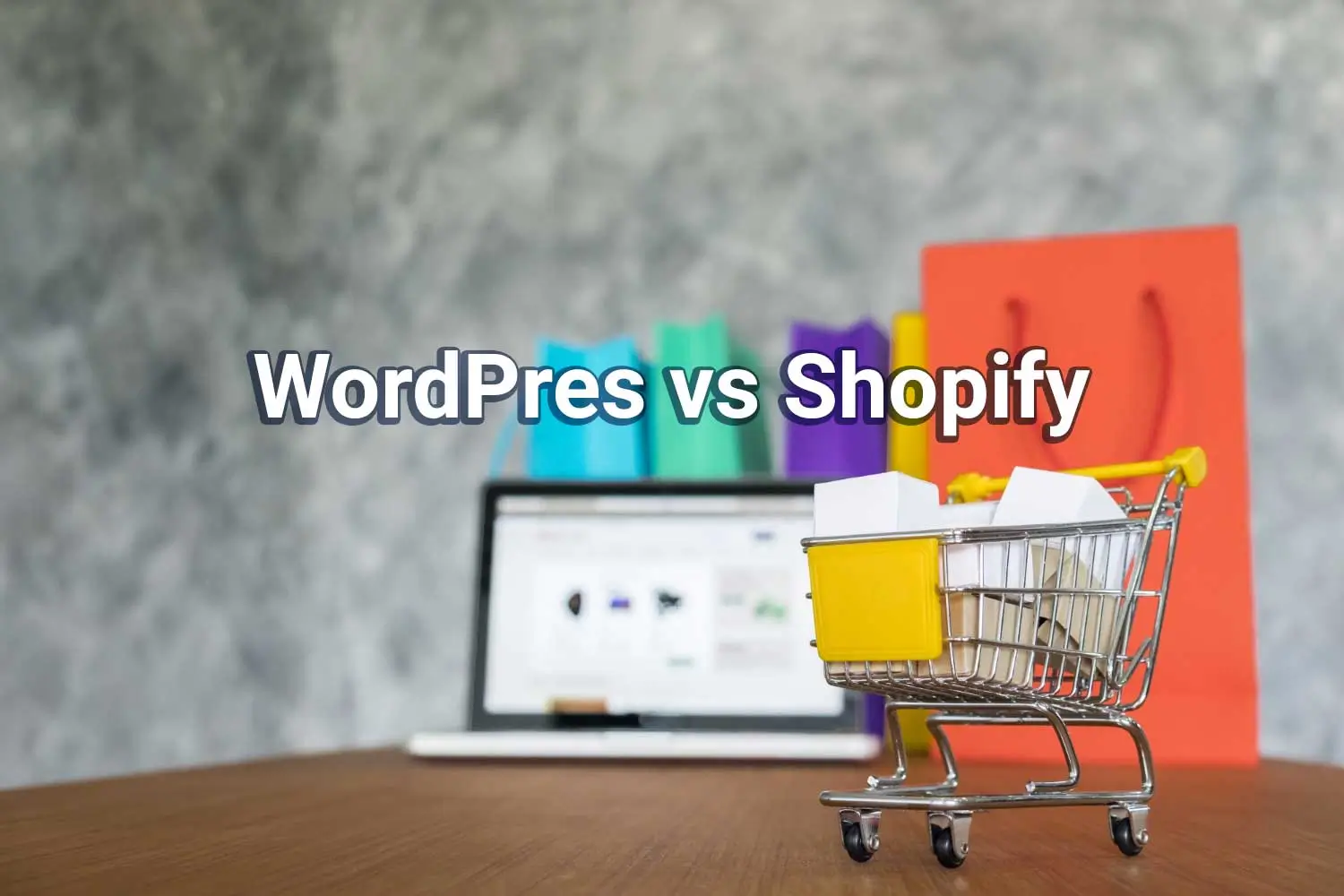WordPress vs Shopify: Which Is the Best Option for Businesses?
In the ever-evolving landscape of e-commerce, businesses are confronted with the critical decision of choosing the right platform to launch and manage their online stores. Today, we embark on a detailed exploration of two industry giants: WordPress with its WooCommerce plugin and Shopify. While these platforms share similarities, their distinctions play a pivotal role in determining the best fit for businesses. Let’s delve into the nuanced features and considerations of each to aid you in making an informed decision for your online venture.
WordPress WooCommerce

WordPress, renowned as a versatile content management system (CMS), transforms into a robust e-commerce solution when paired with the WooCommerce plugin. The journey begins with WordPress itself, celebrated for its user-friendly interface that streamlines content creation and site management. The transformative element, WooCommerce, emerges as a game-changer by seamlessly integrating e-commerce functionality into the WordPress platform. The remarkable aspect is that WooCommerce is a free plugin, empowering businesses to convert standard websites into fully functional online stores without incurring additional costs. This makes it particularly appealing for those mindful of budget constraints.
Flexible Customization with Free Plugins:
What sets WordPress apart is its extensive ecosystem of plugins, many of which come free of charge. These plugins serve as the backbone of customization for a WooCommerce-powered store, allowing businesses to tailor and enhance their online presence. Whether integrating additional payment gateways, optimizing for search engines, or incorporating advanced marketing tools, the diverse plugin library provides unparalleled flexibility. The combination of WordPress and WooCommerce empowers businesses to create bespoke, feature-rich online stores that align precisely with their unique vision and business objectives.
Flexible Customization with Free Plugins:
What sets WordPress apart is its expansive collection of plugins, many of which are freely available. These plugins extend the functionality of a WooCommerce-powered store, providing businesses with the tools to customize and enhance their online presence. Whether integrating additional payment gateways, optimizing for search engines, or incorporating marketing tools, the vast plugin library offers unmatched flexibility. The marriage of WordPress and WooCommerce empowers businesses to craft tailored, feature-rich online stores aligning precisely with their vision and objectives.
Shopify

Streamlined Setup and Subscription Costs:
On the opposing end of the spectrum, Shopify offers a hosted e-commerce solution designed to simplify the entire process for businesses. Covering aspects from hosting to security and e-commerce functionalities, Shopify provides an all-in-one package catering to a broad range of businesses and budgets. The platform stands out for its user-friendly interface, enabling entrepreneurs to focus on products and customer experience without grappling with technical intricacies. However, it’s crucial to note that while Shopify offers a 14-day free trial, its plans are subscription-based. The costs vary based on the required features and scalability needed to accommodate business growth. For businesses seeking a comprehensive and hosted e-commerce solution, Shopify’s subscription plans deliver a convenient and secure platform.
App Store for Additional Functionality:
In a manner reminiscent of WordPress plugins, Shopify boasts its App Store, offering users a diverse array of apps to augment their store’s capabilities. Covering a spectrum of functionalities including marketing, analytics, inventory management, and customer support, these apps provide an additional layer of customization. While some apps are free, others come with a price tag. This model allows businesses to selectively choose and pay only for the specific functionalities they require, offering a tailored approach to enhancing their online stores.
Conclusion: Making the Right Choice for Your Business
In the ongoing debate between WordPress WooCommerce and Shopify, there exists no one-size-fits-all solution. Each platform brings unique strengths to the table, necessitating a thorough evaluation of your business priorities.
WordPress with WooCommerce emerges as an excellent choice for those valuing extensive customization, operating on a modest budget, and appreciating the wealth of free plugins. The user-friendly interface of WordPress makes it accessible to beginners, with WooCommerce seamlessly adding powerful e-commerce capabilities at no extra cost.
Conversely, Shopify proves ideal for businesses seeking an all-encompassing, hosted solution. The streamlined setup and subscription plans cater to those prioritizing ease of use and a comprehensive package. While subscription costs are a consideration, the convenience and security provided by Shopify can often outweigh the expenses.
Ultimately, the optimal choice hinges on your business goals, technical comfort level, and budget considerations. A meticulous evaluation of the pros and cons of WordPress WooCommerce and Shopify will lead to a decision that aligns seamlessly with your vision for a successful online store.



